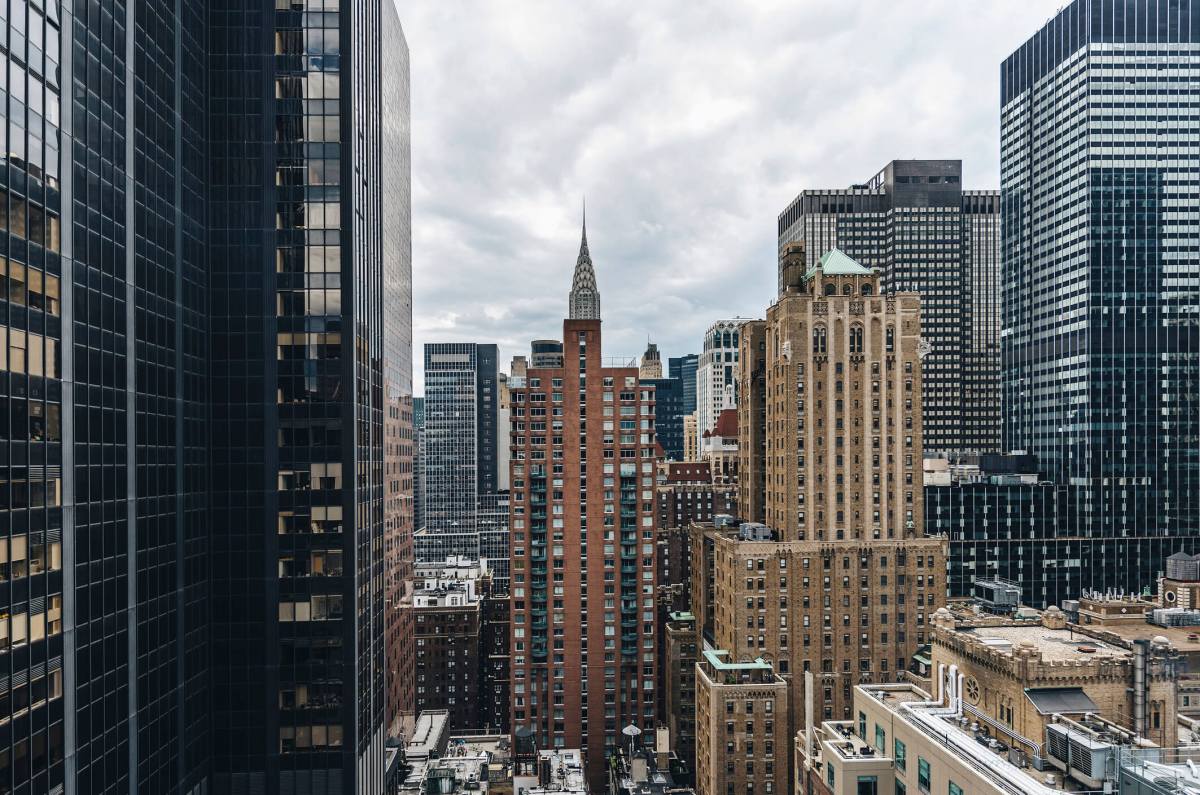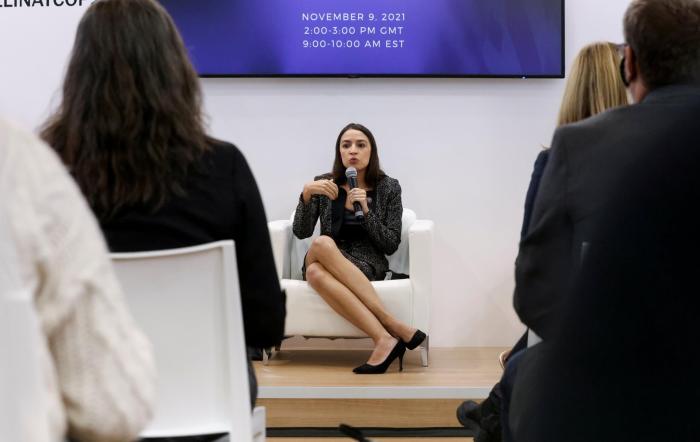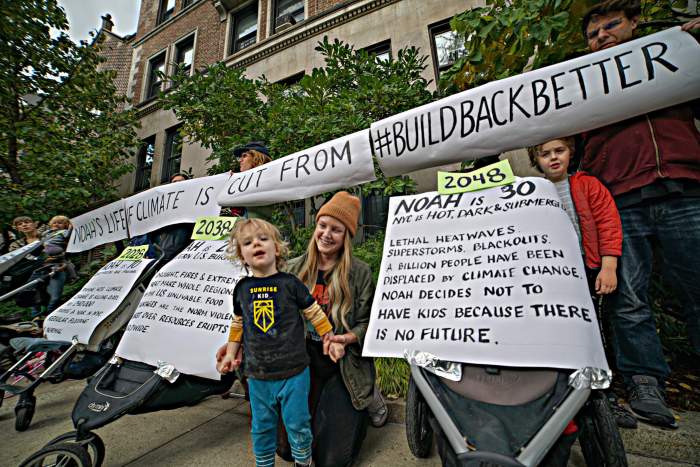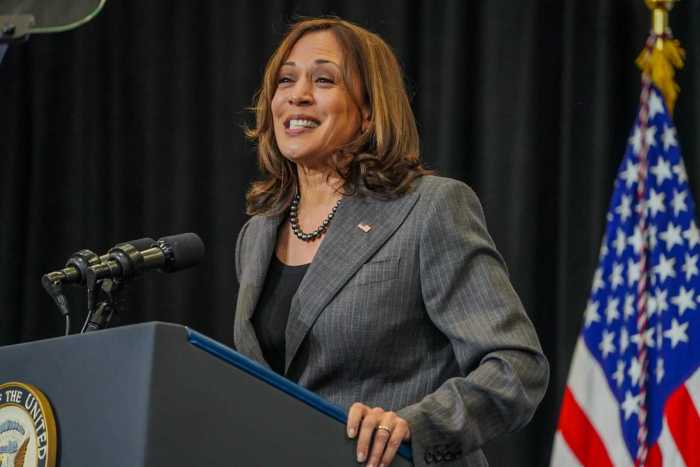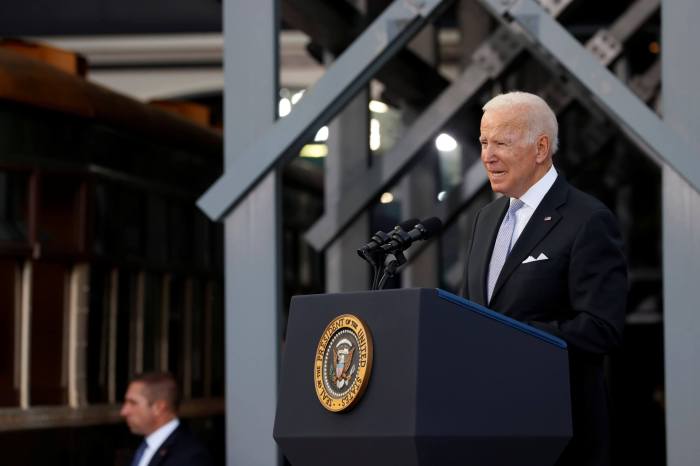In the twentieth century, America transformed its built environment. We built the roads, highways, and interstates that made automotive transit efficient and fast. We built houses and apartments at a pace and cost that made middle class lifestyles much more broadly accessible. And we built an energy grid that made previously unimaginable things ordinary: we press a button to turn on a light, access hundreds of television channels, or change the temperature in our homes. Those investments fundamentally transformed our lives.
We now have no choice but to do it again. Climate change will remake our world unless we remake it first. Fortunately, we know what to do. We need to transition away from fossil fuels and towards a low carbon economy, and we need to fast. The challenge isn’t ideas, it’s speed. As Professor Robert J. Gordon, the self-professed “prophet of pessimism” put it about the pace of innovation more broadly, “Lots of things are being proposed …but they are going to happen very slowly.”
This is why it is so critical that Democrats reach a compromise on Build Back Better – the poorly marketed, on-again off-again reconciliation package. Once you scrape away the stories about posturing and price tags, you find it’s at least as important to remaking our infrastructure as the highly touted infrastructure package that came before it.
In particular, the least controversial components of Build Back Better will jump start a transition in how we heat and cool our homes. Residential and commercial buildings account for 40 percent of America’s carbon emissions, making enhanced energy efficiency and green transformation critical to any climate change solution. Indeed, most of us burn “natural” gas, a fossil fuel, to heat our homes and offices. That must change and change quickly. That’s why we need to expand access to new renewable long-term resources. As one example, in the case of heating and cooling homes, heat pumps, especially ground source, that replace fossil fuel powered systems can reduce a home’s carbon emissions by up to 80%. At the same time, we need to fast track electric generation from renewable sources, and we need to do it with US made products that aren’t vulnerable to geo-political drama.
New York’s own communities are leaders on fighting climate change, from policies at the local to the state level and to key partnerships and incentives through the NY Clean Heat program that empower homeowners and businesses alike to afford to make changes that make a difference that over time will create a more robust economy and higher quality of life.
The climate portions of Build Back Better do more than any bill before it to accelerate the transition in how our communities heat and cool their homes, and it does it through proven means. Often, the challenge with energy related investment is that the upfront costs are usually significant, while the benefits are realized over many years. Tax credits help solve this problem by lowering the upfront costs so that those long-term benefits are more likely to be realized.
This methodology has worked already. Investment tax credits have been most used by solar installers, helping create surging demand for a once out of reach technology that’s making buildings more energy independent and carbon neutral. The bill would broaden the application of tax credits, applying them to heat pumps, fuel cells, and extending and expanding them for ground source heat pumps. As a leader of a renewable energy innovator scaling in New York because of incentivized opportunities for local residents who want to make the switch, I have seen firsthand how much acceleration is needed and the exponential impact it can have on empowering consumers to make decisions that will preserve their communities for this and future generations.
Build Back Better also makes these tax credits more equitable by paying them directly instead of deducting them from a tax bill. This means that people with lower tax burdens can benefit from the credits. It also means that schools, churches, and non-profits will be more incentivized to invest in renewable energy as well.
Finally, Build Back Better puts its finger heavily on the scale in favor of encouraging the deployment of U.S. manufactured goods by offering an additional ten percent tax credit for goods primarily manufactured in the U.S. On paper, this is important because it means that we’ll develop our own clean industries and capabilities.
It’s also important for a larger, more central reason. It’s trite to observe that America is a divided country. While there’s no single cure for that, it might help to invest more in the physical world. Building creates opportunity. It requires college degrees and skilled labor. It demands teamwork in the broadest sense. And there’s a unique pride that comes when, at the end of the day, you can look and touch the results of your work.
When people look back fondly at our past, they are often looking to a past where we transformed the world and made it better. We need to do it again and quickly. Build Back Better can still help us get there. I hope an agreement is reached and we can start the real work ahead, starting in New York, and in every state across the nation.
Michael Sachse is the CEO of Dandelion Energy, the nation’s leading home geothermal company. Dandelion uses high-performance equipment and a proprietary, low-cost installation process that allows homeowners to save money and help the environment by moving away from conventional heating and cooling methods.
Before joining Dandelion, Sachse was the Entrepreneur in Residence at New Enterprise Associates, a position that allowed him to cultivate growth opportunities in the startup space. A graduate of Amherst College and Harvard Law School, Sachse has served in multiple leadership positions across various organizations where he facilitated growth and operational maturation during his tenure.
Sachse sees sustainable living practices and environmental responsibility as foundational to our future and consequential to our collective good. Sachse’s multifaceted background, including work in legal, nonprofit, governmental, and corporate environments, has informed his efforts to advocate for local rules and regulations that incentivize a greener, more sustainable future.



